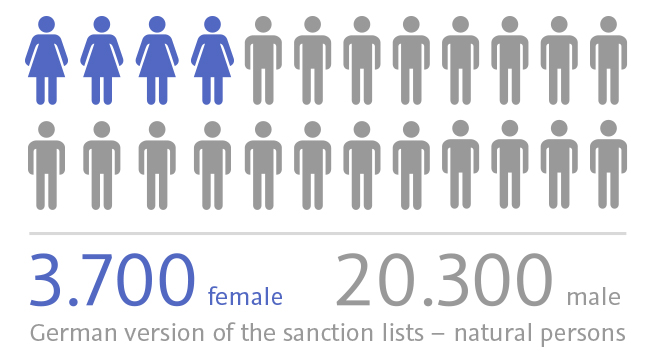Beware the greeks bearing gifts!
The assembly lines and paint lines of vehicle manufacturers have not suddenly mutated into hotbeds of horror. They are merely implementing what the legislature’s compliance requirements dictate in terms of terror prevention, and what all German companies will have to do sooner or later – namely, ensure that they do not pay salaries to anyone on sanctions lists.
The German version of this list currently comprises 24,000 individuals (of whom, incidentally, only just under 3,700 are female – clear evidence that men are the more violent sex), as well as some 30,000 organizations. Turning off the money supply to them is the goal of compliance requirements; whereby “compliance” is much more than adherence to the law. On a business level, the term encompasses the observance of all codes that companies set for themselves, for example in terms of environmental standards, occupational safety standards, data protection, human rights, etc. The internal handling of voluntary regulations is left to the discretion of each company; however, the implementation of legal requirements can sometimes become a hot potato, as many regulations leave a great deal of leeway. For example, not all automotive companies regulate things in the same way. While some already check their salaries regularly, others see no reason to do so: “We pay all our employees by bank transfer. And the banks are obliged to check all account holders anyway,” says the spokesman for a German group.
From which we can learn that banks and related institutions such as insurance companies have to meet particularly high compliance requirements. Does that leave you cold, because you’re not a bank and you only do business in Germany? Careful: Regardless of whether you are a corporate group or a medium-sized business, an institution or a private individual – the relevant laws apply to everyone. In 2007, this became clear in a supposedly everyday case. At the time, the European Court of Justice prevented a completely normal purchase of land in Berlin – one of the three potential buyers had been on the sanctions list because of links to Al-Qaeda (http://www.eu-info.de/eugh/Grundsteuck-al-Qaida/).


 Shutterstock
Shutterstock